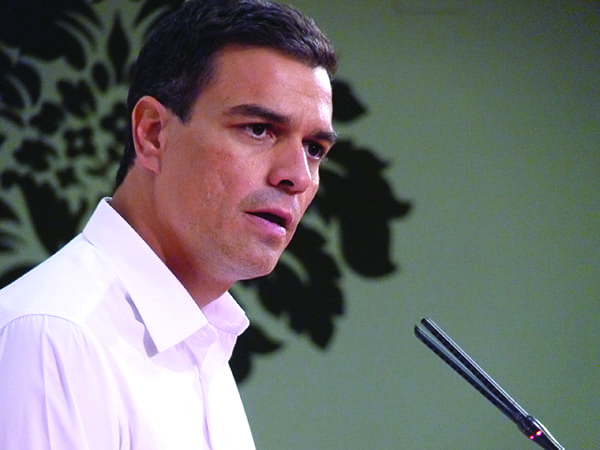Spain Closing Mines in Transition Away from Coal
Coal from domestic mines provides just more than 2% of Spain's electricity generation, as the country has increasingly moved away from coal-fired power toward renewable sources. The administration of new Prime Minister Pedro Sanchez in late October said the country will close most of its domestic mines by the end of this year. Government data shows the country generates about 34% of its power from renewables, with wind power producing more than 20% of the nation's electricity, almost on par with nuclear output. Coal-fired generation provides just more than 17% of the country's power, with much of that coal imported.
According to Euracoal, in 2015, Spain used 22 million tonnes of coal for power generation, with 19 million tonnes imported. The country's largest utility, Endesa, a subsidiary of Italy's Enel, earlier this year said it would close its last two coal-fired power plants by 2020. Spanish utility Iberdrola also has said it would close its remaining two coal-fueled plants by the same date. The country's government late last year said it might move to block coal-plant closures (see "Spanish Government Takes Steps to Support Coal-fired Generation," in POWER's January 2018 issue), but Spanish market and competition regulator CNMC (Comision Nacional de los Mercados y la Competencia) said such a plan was on "shaky legal ground." (For more, see "Spain's Market Regulator Rejects Attempt to Save Coal Plants," in POWER's March 2018 issue.)
The Sanchez administration, which has moved quickly to put environmental measures in place since the prime minister took office in June, in late October said the country will close most of its domestic coal mines by the end of this year in exchange for a government investment of a250 million ($285 million) in mining regions over the next decade. Sanchez (Figure 1) and his administration's Minister of Ecological Transition, Teresa Ribera, just days after taking office said the country's so-called "sunshine tax"-a tax on distributed energy generation adopted by the previous administration of Mariano Rajoy-would be repealed in a show of support for the renewables industry. The Sanchez government also has announced a national climate plan, which includes meeting ambitious European Union 2030 renewable energy targets.
 |
1. Pushing environmental plans. Spain's new prime minister, Pedro Sanchez (shown here), and Teresa Ribera, who serves as minister of Ecological Transition, have made meeting European Union renewable energy targets a goal of their administration. Courtesy: Wikimedia Commons |
The government worked with unions representing coal miners to broker the mine-closure deal. It offers early retirement plans for miners over age 48, provides job retraining initiatives for workers, and also provides funds for environmental restoration of mining sites. The government said 10 pits will close by year-end, affecting more than 1,000 miners and subcontractors. It is expected that about 600 miners will take advantage of social aid, most of them in the country's northern mining regions of Asturias, Aragon, and Castilla y Leon, and about 60% of the current work force could take early retirement.
The European Commission is providing more than a2 billion in aid to keep some of the country's mines open temporarily. Spain's coal industry employed more than 100,000 workers in the 1960s before the country began importing most of its coal. The country had 167 operating mines as recently as 1990. Montserrat Mir, Spain's confederal secretary for the European Trades Union Congress, told The Guardian newspaper that "Spain can export this deal as an example of good practice. We have shown that it's possible to follow the Paris agreement without damage [to people's livelihoods]. We don't need to choose between a job and protecting the environment. It is possible to have both." Said Ribera: "With this agreement, we have solved the first urgent task we had on the table when we came to government. Our aim has been to leave no one behind. We also want to go further, we want to innovate. That is why we offer the drawing up of 'Just Transition' contracts, with the aim of helping the regions to consolidate the employment of the future."
-Darrell Proctoris a POWER associate editor.
The post Spain Closing Mines in Transition Away from Coal appeared first on POWER Magazine.